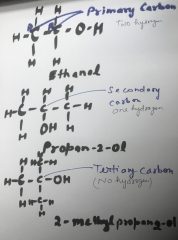Exploring The Process Of Formation Of Magnesium Chloride: Magnesium chloride is a crystalline solid compound that has emerged as an essential industrial material. Its formation involves several chemical reactions, and its physical and chemical properties make it suitable for a variety of uses. Learn more about the formation of magnesium chloride and its practical applications.
What is Magnesium Chloride?
Magnesium chloride is a crystalline compound with the chemical formula MgCl2. It is formed by the reaction of elemental magnesium and chlorine gas. It is a colorless solid that has a bitter, salty taste and dissolves easily in water. Magnesium chloride has several industrial uses, such as fertilizer, de-icing agent, antiperspirant and tanning agent. Magnesium chloride has many practical applications due to its solubility in water and its low toxicity level.
How is Magnesium Chloride Formed?
Magnesium chloride is formed from the reaction of elemental magnesium and chlorine gas. This reaction is exothermic and produces a white fumes and several other byproducts. The exact reaction for the formation of magnesium chloride can be written as Mg + Cl2 -> MgCl2 + Heat. This compound has strong intermolecular attractions among its ions, leading to the formation of a crystal lattice with a three-dimensional structure.
What are the Physical and Chemical Properties of Magnesium Chloride?
Magnesium chloride is a white, crystalline solid with a neutral pH. It has an approximate molar mass of 95.211 g/mol, and it inevitably forms cubical crystals with octahedral faces. In addition, magnesium chloride has a melting point of 714 °C and a boiling point of 1,461 °C at 101.3 kPa. Solubility in water is slightly alkaline, and its solubility decreases with increasing temperature. Furthermore, the compound has a high hygroscopicity which allows it to draw moisture from the atmosphere and dissolve in water due to the presence of polar bonds between the molecules of this compound.
What is the Industrial Use of Magnesium Chloride?
Magnesium chloride is widely used for industrial purposes such as making fertilizers, medicine, paper, paints and dyes. It can also be used as a reagent in various chemical reactions, as a degreaser to clean metal pieces or to make adhesives, fire retardants and insulation materials. Magnesium chloride is also used in the process of manufacturing concrete blocks and bricks because it can provide better strength and durability than calcium-based ingredients. Furthermore, magnesium chloride products can be found in deicing agents that are used to melt snow and ice on roads during winter months.
Does Magnesium Chloride Have Any Health Effects?
Studies have found that since magnesium chloride is a common mineral supplement, it has shown to be generally safe for human consumption. Some side effects of overconsumption, however, include nausea and vomiting, as well as headaches and muscle pain. It is best to consult a healthcare professional if you are interested in taking magnesium chloride supplements. Alternatively, you could add magnesium chloride-rich foods such as nuts and seeds to your daily diet.
Please comment on the post ” Exploring The Process Of Formation Of Magnesium Chloride” and share if you find it informative and useful.

